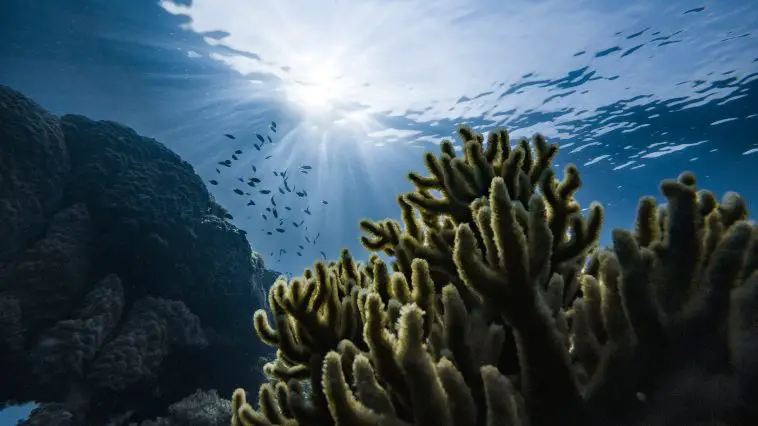Are you considering a career as an underwater welder in Texas? Underwater welding is one of the most dangerous and lucrative jobs available. Not only do you get to explore the deep depths of the ocean, but it also pays quite well! In this article, we’ll take a closer look at what you need to know about being an underwater welder in Texas – from salary expectations to training requirements. So if you’re ready to dive into this exciting profession, let’s get started!
Page Contents
Typical Job Duties of an Underwater Welder in Texas
As an underwater welder in Texas, you’d be responsible for a number of duties that require expertise and precision. You would need to plan and execute welding projects while submerged in water, often with limited visibility. In addition to welding itself, you’d also need to inspect the welds afterwards and ensure their integrity before moving on to the next task.
These job duties can vary depending on the company or project but typically involve completing tasks such as:
• Preparing pipes for joining by cutting into desired shape using welding tools
• Setting up equipment prior to use including torches, hoses, pumps and air compressor tanks
• Locating defects within welded pieces using various inspection methods such as radiography or ultrasonic testing
• Making adjustments during welding process based on type of material being worked with
• Connecting pipelines by fusing them together through arc-welding technology
• Monitoring equipment levels throughout diving process including oxygen tank pressure levels
• Utilizing specialized tools designed specifically for underwater tasks such as remote operated vehicles (ROV)
By taking all these responsibilities seriously your work will ultimately help protect environment from potential damage caused by oil spills or other marine accidents. With this important role comes great responsibility which requires a level of skill few possess—you’ll have immense pride knowing your work keeps our waters safe!
Education and Training Requirements for Underwater Welders in Texas
Underwater welding is an exciting and challenging career that requires the right education, experience, and certifications to become successful. In Texas, there are several requirements for those who want to pursue a career as an underwater welder.
For starters, aspiring welders must be in possession of a valid high school diploma or GED equivalent. While it’s not required for entry-level positions within this profession, having at least basic knowledge of math and science can prove beneficial when seeking employment with reputable companies. It’s also important to have good communication skills since underwater welders often work with others onshore while they’re performing their duties in the water.
Next up is obtaining training through accredited educational institutions or technical schools offering courses specifically designed for underwater welding jobs in Texas. These classes will teach students how to use specialized equipment such as air tanks and oxygen masks safely; how to read blueprints; how to inspect the quality of welded joints; plus many other essential skills needed for success in this field. Most programs require applicants hold certification from The American Welding Society (AWS) prior to enrollment but some programs may accept uncertified individuals if they demonstrate adequate levels of skill during an assessment test administered by the institution itself.
Once you’ve completed your coursework successfully, you’ll need additional hands-on experience before being ready for full time employment opportunities as an underwater welder in Texas:
• Learn proper safety procedures associated with diving operations
• Get certified through AWS after passing their proficiency exam
• Obtain relevant licenses issued by the state government including first aid & CPR certification
• Acquire commercial scuba diver qualifications
Underwater Welders Salary in Texas
Texas is home to some of the most sought-after underwater welders in the world. Working as an underwater welder can be a lucrative and rewarding career choice, with salaries ranging from $30,000 to over $100,000 depending on experience and qualifications.
In Texas, it’s common for experienced underwater welders to make upwards of six figures each year. With the right skillset and years of practice, top earners can even exceed that number. Underwater welding requires specialized training and certification; however it is possible to break into this field without any prior experience or knowledge. Most employers will provide on-the-job training so long as you demonstrate a willingness to learn quickly and have a strong work ethic.
Underwater welders in Texas benefit from high wages due to the state’s booming oil industry which provides plenty of opportunities for workers who specialize in this type of work. In addition, many companies offer generous benefits packages including health insurance coverage, 401K plans, paid vacation time off and more. There are also job perks such as travel allowances if required for assignments out of town or overseas – making working life as an underwater welder both exciting and financially rewarding!
Benefits of Working as an Underwater Welder in Texas
If you’ve been looking for a job that provides an exciting, unique adventure, then becoming an underwater welder in Texas could be the perfect opportunity. Working as an underwater welder comes with many benefits that can make your career not only enjoyable but also rewarding.
For starters, being based in Texas gives you access to some of the most beautiful coastline and aquatic environments in the country. As an underwater welder, this means spending time exploring vibrant coral reefs and spotting exotic marine life while completing welding jobs under the sea. You can even work on oil rigs located off shore – giving you views of miles of pristine ocean from up high. Plus, after a long day at work there are plenty of activities like fishing or snorkeling available around sunset!
As far as career benefits go – being an underwater welder is no exception. Not only does it provide excellent wages, but it’s also a great way to develop transferable skills like problem solving and creative thinking which will be beneficial if you decide to take on other roles later down the line. Additionally, working offshore provides additional bonuses such as travel allowance and free accommodation while away from home – allowing you to explore more of what Texas has to offer! Here are some other reasons why becoming an Underwater Welder in Texas might be right for you:
• Opportunity to experience breathtaking natural wonders both above and below sea-level
• Ability to hone important skills such as problem solving & creativity
• High pay & great bonus packages when working overseas
• Possibility for further advancement & opportunities within your field
Safety Considerations When Working as an Underwater Welder in Texas
Underwater welding is a dangerous job, requiring specialized skill and knowledge that not all welders possess. Working underwater as a welder in Texas has its own set of safety considerations to be aware of when taking on the job.
The first consideration for an underwater welder in Texas is to understand the local rules and regulations regarding diving operations in their state. The Occupational Safety & Health Administration (OSHA) requires all divers to have proper certification from the Commercial Diving Training Council before they can dive professionally – this includes both air and mixed gas dives. Additionally, each diver must receive additional training specific to their assigned tasks while underwater. This training should provide information about how to safely operate machinery in extreme depths, recognize potential hazards like currents or pressure changes, and know what precautions are necessary for staying safe while working under water.
Secondly, it’s important for an underwater welder to consider any health risks associated with working at such depths. Deep sea diving puts divers at risk of decompression sickness which happens when nitrogen bubbles form inside a person’s body due to rapid changes in pressure during ascent from the deep sea environment; these bubbles can cause debilitating pain if left unchecked. It’s crucial that divers take preventive measures against this by adhering strictly to descent-ascent protocols based on dive time tables provided by OSHA standards or other reliable sources; failure do so could result in serious injury or death as well as legal liabilities for employers who don’t follow safety regulations closely enough!
Finally, since electricity is involved with many types of welding operations, special attention must be paid towards preventing electrocution among welders who work submerged beneath water surfaces; all electrical equipment used should be certified waterproof according to relevant safety codes and appropriately rated for submersion use only! Additionally, workers should always wear insulated clothing designed specifically for wet environments along with appropriate eye protection goggles whenever operating electrically powered tools/equipment near bodies of water – even when working above ground level!
In conclusion: Underwater welding carries unique risks compared with traditional land-based welding jobs which require special certifications beyond typical qualifications needed by regular welders; moreover those employed within this profession need additional precautionary steps taken including understanding applicable laws & regulations related directly too their duties plus being mindful towards health risks associated particularly related too deep diving situations where decompression sickness may occur alongside dangers posed by electric shock exposure during certain activities conducted below surface levels!
Other Factors Impacting the Salary of an Underwater Welder In Texas
Underwater welding is an exciting and highly skilled career, but the salary a professional can make in this field varies significantly based on several factors. In addition to location, such as whether the job is located in Texas or another state, other elements that have a major impact on underwater welding salaries include experience levels of welders, company size, and type of employer.
Experience Level: An experienced welder who has been working for years will likely be able to command higher wages than someone with less experience. Many employers are willing to pay more for well-seasoned professionals because they understand that these individuals bring valuable expertise and knowledge from previous jobs or apprenticeships. Moreover, those with additional certifications may also qualify for higher wages since these demonstrate competency in their trade.
Company Size: The size of the company where one works will also influence how much money an underwater welder can earn annually in Texas. Large companies tend to offer larger salaries due to their ability to pay more; whereas smaller companies may not be able to afford top dollar rates even if they wanted too because of financial constraints. Furthermore, some organizations might offer attractive benefits packages along with competitive salaries while others don’t offer any additional incentives beyond base pay making it important for welders seeking employment opportunities in Texas consider all aspects when evaluating offers from potential employers.
Type Of Employer: Lastly, the kind of organization employing an underwater welder can affect annual income potentials as well; private firms typically have different budgets than government entities so what one earns at each might differ greatly even though work duties remain similar between them both. Therefore people looking into becoming certified welders should research all types of possible employers before settling on any specific option so they know ahead of time what kind salary range they could expect within their areas according geographic area/state like Texas where cost-of-living costs vary widely across cities within it boundaries
Finding Employment Opportunities For An Underwater Welder In Texas
Finding employment opportunities as an underwater welder in Texas can be a daunting task. After all, there are so few positions available and the competition is fierce. The good news is that with some research and determination, you can find great job opportunities for this highly specialized profession.
Start by researching companies in the state of Texas that offer underwater welding services. Look through online job postings to identify any openings they may have listed. You should also contact local diving schools or organizations to see if they know of any upcoming projects requiring underwater welders in your area. Additionally, you might consider joining industry associations such as Underwater Welding International (UWI) or becoming certified by them, which could help open up additional avenues for finding work as an underwater welder in Texas.
You can also keep your eyes peeled for potential employers who post ads on social media platforms like LinkedIn or Indeed – these outlets often have plenty of leads related to welding jobs available throughout the country, including those from Texas-based companies looking for skilled professionals like yourself! Finally, don’t forget about networking; reaching out to other experienced welders in your area may give you insight into what types of jobs are available and how best to land one of these competitive positions!
Wrapping it Up!
Working as an underwater welder in Texas can be a rewarding and exciting career. It requires specialized training and education, but the salary is competitive with benefits. Safety needs to always be taken into consideration when working in this field. Salary will also depend on various factors such as location, experience level, certifications held etc. There are many opportunities around the state of Texas waiting to be explored by those interested in this profession. With dedication and hard work you too could become an underwater welder and make your dreams come true!
underwater welder salary texas
Frequently Asked Questions!
Q: How much does an underwater welder make in Texas?
A: The average salary for an underwater welder in the state of Texas is roughly $66,000 per year. However, this figure can vary widely depending on experience and job location.
Q: What qualifications are needed to become an underwater welder in Texas?
A: Generally speaking, a high school diploma or GED is required for most entry-level positions as an underwater welder in Texas. Additionally, many employers also require applicants to have completed specialized welding courses that focus on safety protocols and techniques used when working under water.
Q: Are there any additional certifications I should obtain before applying to be an underwater welder in Texas?
A: Yes, certification through the American Welding Society (AWS) is highly recommended for anyone looking to work as a professional welder in the state of Texas. AWS certification indicates that you possess a strong knowledge base pertaining to welding technology and safety procedures associated with it.
Q: What other skills might be beneficial when seeking employment as an underwater welder in TX?
A: In addition to welding expertise and certified credentials, potential employers may also look favorably upon candidates who demonstrate proficiency with equipment such as air tanks, oxygen cutting torches and various types of hand tools often used during projects involving submersible welders. Having basic first aid knowledge could prove helpful too when attempting jobs requiring more advanced technical skill sets relating to marine construction applications or hazardous materials handling processes at depths beneath the surface of bodies of water within the state’s borders..
Q: Is there any type of licensing necessary prior to performing work duties related to being employed as an underwater welder within TX?
A: No specific license is required by law before engaging in duties associated with being employed as a professional diver/welding technician within the boundaries set by all applicable regulations put forth by local governing authorities across all regions inside Texas’ geographic jurisdiction.





